n Sunny Delight was one of the most successful fmcg launches of the 1990s. But now Procter & Gamble is having to throw a mighty £12m behind the ailing soft drink brand. Simon Mowbray reports
It was not so long ago that many a rival brand manager was scratching his or her head, wondering how P&G made it look so easy. Without apparently so much as breaking into a sweat, the company's marketing moguls took a product out of their established US portfolio, bottled it for the UK market, threw some money at it and then sat back and watched as it became the rip-roaring success we now know as Sunny Delight.
Launching here in 1997 following successful trials, a no-nonsense £18m first year marketing spend helped propel the California- and Florida-style orange thirst quenchers into grocery folklore, scoring an instant hit with the eight- to 12-year-old age group at which they were aimed. Within two years, sales had topped £150m a year as new flavours were added and drop-jawed brand managers of rival refreshers looked on in disbelief.
However, the fairytale ending has so far proved elusive. Last summer, figures from AC Nielsen showed that sales had nosedived by 35% following consumer concerns over high-sugar drinks and Sunny D slumped from number 16 to 42 in a list of the UK's favourite brands.
The Grocer's recent Top Products Survey made even worse reading, with data from Information Resources showing that sales of the drink bombed by 38% in multiple grocers in the year to October 7 to settle at under £57m. P&G, meanwhile, puts total sales through all outlets at around £70m.
Now the company claims enough is enough and is opening the purse strings on a £12m relaunch which will see new packaging, new flavours, fresh advertising, and, perhaps most importantly of all, a new no-nonsense approach to meet its health critics head on. The hope is simple that Sunny D will quickly make its way back up the soft drinks charts. "We have had a pretty rough time for the last 18 months," admits Sunny D's new 25-year-old brand manager, Jon Lear. "We had a problem and were slow to react in some areas, but now we are going to fix it."
Part of this new tack must include winning back the 20- and 30-something mums who made Sunny Delight a success in the first place. But many, bombarded by press reports of the perils of letting their kids drink Sunny D, may prove reluctant to return to something which they have been repeatedly told is bad for their little ones' health.
P&G claims it has addressed this by improving the health benefits of the relaunched brand and the new range, which hits shelves from the end of next month, will contain 15% juice instead of the usual 5%. Four new flavours Orange Outburst, Tropical Tornado, Blackcurrant Blast and Apple & Kiwi Kick will also boast no added sugar'. Yet the company has no plans to use any of these facts as a key tool in advertising campaigns. Instead, a TV ad set to hit screens in April will concentrate on how Sunny D is the perfect drink to share among young friends, while print ads aimed at mothers in lifestyle glossies and at kids in pop culture magazines will do the same.
"Going down the health line is a minefield," explains Lear, "and one which we don't intend to follow. I guess it's a case of once bitten, twice shy. All the benefits of the drinks, such as added vitamins, will be there on the label for everyone to read, but we have no intention of using that as a selling tool. Instead, we want to concentrate on the taste of the drinks."
Lear is certainly counting on the support of retailers and there is little to suggest he won't get it. Despite its tribulations, Lear says Sunny D still has 85% coverage in the multiples and 65% in independents.
Last week, at the International New Products Forum in Leatherhead, it was also held up as an example of a brand which is simply still too big to walk away from, whatever its troubles may be."Our customers still want this brand," adds Lear, "but they have been asking for a radical change and that is exactly what we are doing."
{{FEATURES }}
Close menu
- Home
- Retail & Wholesale
-
Products & Suppliers
- Back to parent navigation item
- Products & Suppliers
-
Product Categories:
- Back to parent navigation item
- Product Categories:
- Alcoholic drinks
- Bakery
- Cereals & breakfast
- Cheese
- Chicken & poultry
- Chocolate
- Confectionery
- Crisps, nuts & snacks
- Dairy
- Fish
- Fresh produce
- Frozen
- Household
- Meat
- Own Label
- Sauces & condiments
- Seasonal
- Soft drinks
- Vaping
- Vegan & plant-based
- World foods
- Suppliers
- People
- Reports & Data
-
Topics A-Z
- Back to parent navigation item
- Topics A-Z
-
Popular topics:
- Back to parent navigation item
- Popular topics:
- Cost of living crisis
- Crime
- Deposit Return Schemes
- Finance
- Government & Regulation
- Health
- Inflation
- Loyalty
- Marketing
- Mergers & Acquisitions
- New Product Development
- Sourcing
- Supply chain
- Sustainability & environment
- Technology
- Ultra Processed Foods
- Vaping
- A-Z all topics
- Content by type:
- Events
- Ask iA (beta)
- Subscribe now
Sign in to comment on this article
Not logged in before? Register for FREE guest access today.
You will be able to:
- Read more stories
- Receive daily newsletters
- Comment on stories
Advert



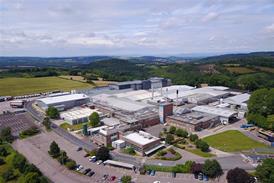




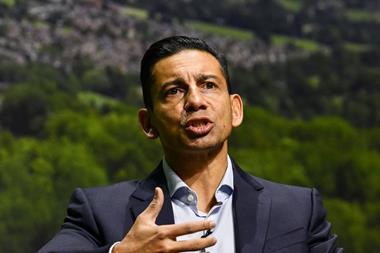
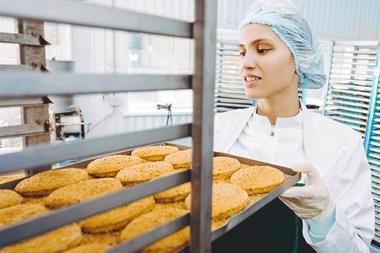
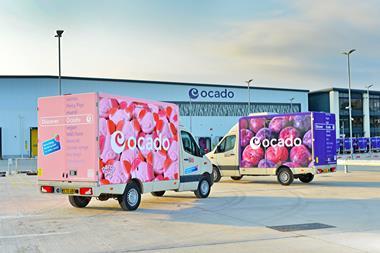

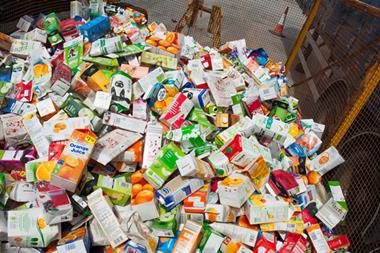
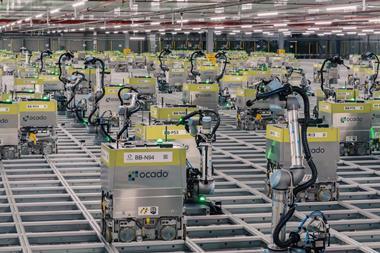
No comments yet